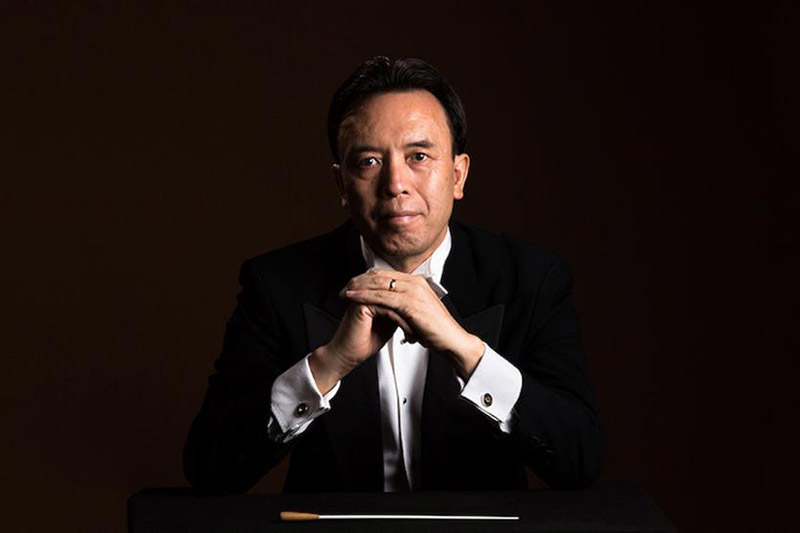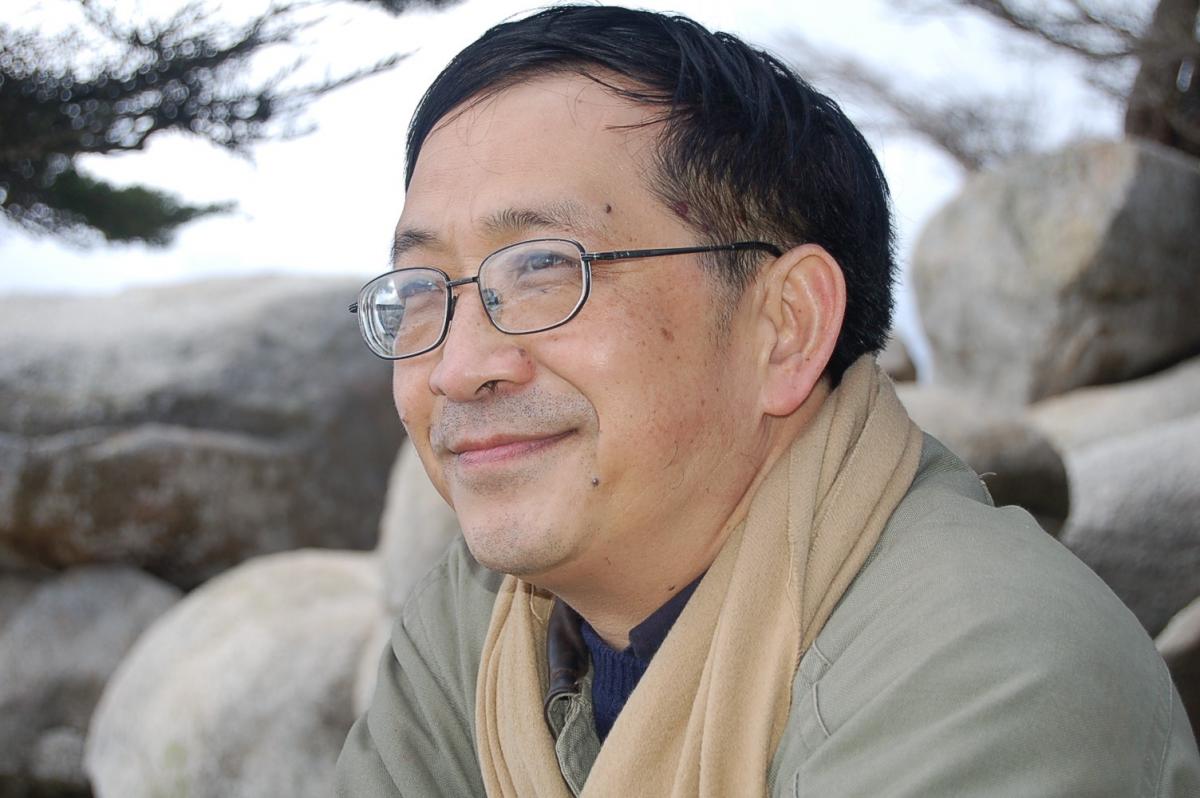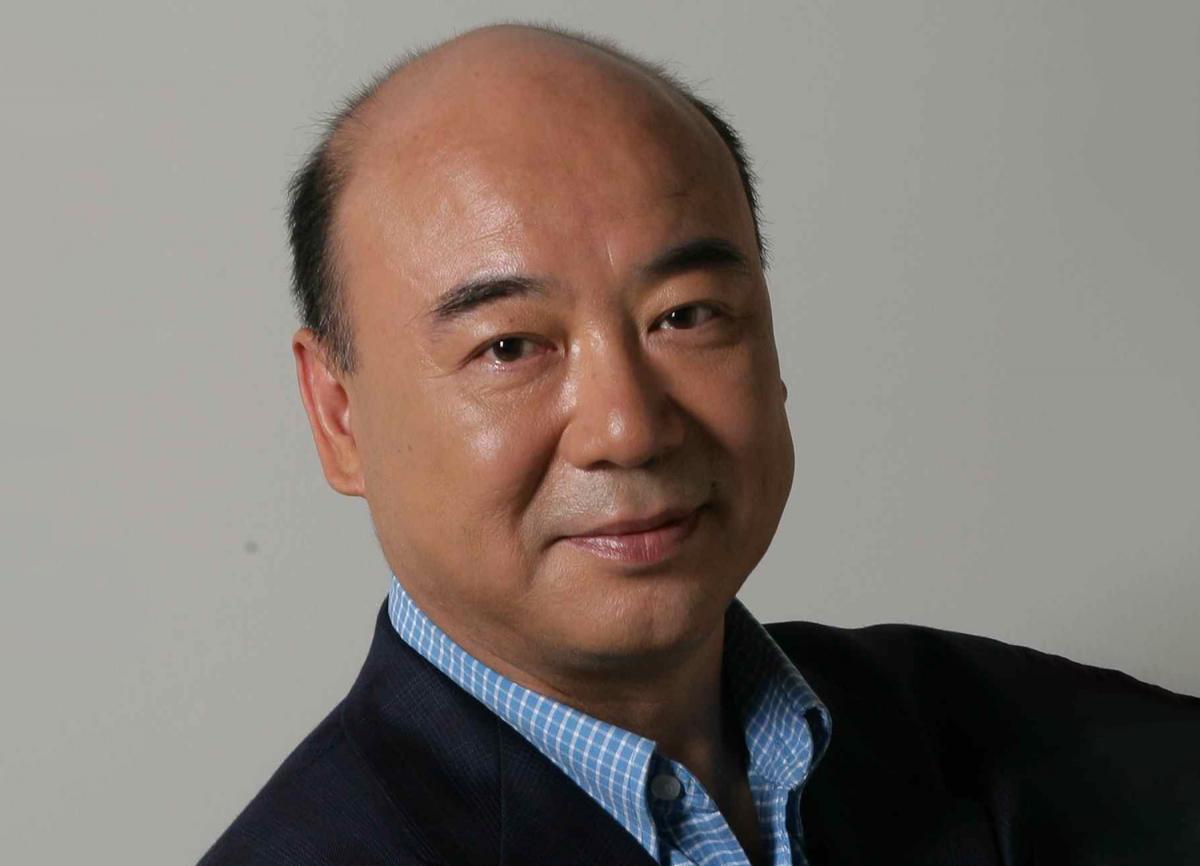Men of Iron and the Golden Spike: 150 Years Later, An Oratio Tribute

Men of Iron and the Golden Spike: 150 Years Later, An Oratio Tribute to Chinese Railroad Laborers
By Sharon M. Chin
When the Golden Spike was hammered in by American railroad tycoon Leland Stanford in 1869, commemorating the completion of the United States' first transcontinental railroad, the estimated 20,000 Chinese migrant railroad workers who had labored on this endeavor were unceremoniously missing. Thousands of Chinese workers had risked life and limb to lay railroad lines across the mountainous Sierra Nevadas and the burning deserts of Nevada and Utah, often suffering subpar labor conditions, predatory wages, and discrimination. Yet these faces, excluded from both celebratory photos and official government records, remained nameless and without acknowledgement, their contributions to this engineering marvel ignored for decades. Today, in honor of the 150th anniversary of the railroad’s completion, Jindong Cai, artistic director of the China Now Music Festival and a professor of Bard’s US-China Music Institute, and Professor Gordon H. Chang, founder of Stanford University’s Chinese Railroad Worker Project, seek to “amplify the long-silent voices of the railroad Chinese” and “convey a deep sense of reverence for our Chinese ancestors who suffered injustice.”
Librettist Su Wei, composer Zhou Long, and conductor/artistic director Jingdon Cai at the Museum of the Chinese of the Americas, discussing Men of Iron and the Golden Spike.
In 2013, the two conceived of a “grand symphonic oratio” to commemorate the contributions of Chinese workers for the 150th anniversary of the railroad’s completion. Unlike an opera, which is staged with scenery and action, an oratio is a large musical composition for orchestra, choir, and soloists and is typically intended for concert presentation. Yale University-based writer Su Wei, and Pulitzer Prize-winning composer Zhou Long were asked to and agreed to join the commission. Together, these three artists created Men of Iron and the Golden Spike, which will debut at Carnegie Hall on October 1, 2019. This past week, librettist Su Wei, composer Zhou Long, and conductor/artistic director Jingdon Cai held a panel at the Museum of the Chinese of the Americas to discuss the conception, creative process, and reverent emotions behind this newly staged work.
Librettist Su Wei showcasing a document used in the creation of the libretto.
Su Wei began conceptualizing Men of Iron and the Golden Spike, over 30 years ago, in 1984. Then a UCLA graduate student, Su became aware of this forgotten chapter of history while at an Orange County railroad celebration event. Su was moved by the “spirit of the Chinese railroad men- diligent, resilient and able to march forward in the face of hardship”— and created an eponymous opera libretto. For the oratio, Su used his original libretto and stage play text and began “with a process of subtraction and simplification. The original version was more complex and I was able to use the basic skeleton as the plot.” Su began to reread historical source material for the oratio, reflecting again on the exclusion faced by the Chinese. Su learned that the Central Pacific Railroad initially wanted a whites-only workforce, and it was only under the conditions of a labor shortage that the Chinese were hired. Despite this prejudice, Chinese laborers demonstrated incredible perseverance, with railroad executive Charles Crocker lauding “’Didn’t their ancestors build the worlds’ greatest engineering project- the Great Wall?.” For Su, “This promoted me to add the line “We are the sons of the Great Wall builders,” a moment of Chinese heritage celebration and pride, “to the oratio.”
Libretto text of interaction between Irish woman (Mary) and Chinese Laborer (Ah Kun)
Zhou would compose nine movements to tell the story of the Chinese railroad workers ( “‘Prologue,’ ‘The Endless Sea,’ ‘Coolie Work Chant’,’Song of the Chinese Railroadmen’, ‘These Chinamen’, ‘My name is….’, ‘Snow on a New Years Even’, ‘Avalanche,’ The Golden Spike’, and ‘Epilogue’”). The story captures the journey of the Chinese railroad workers to America; their experiences as workers; interactions with other laborers, including an Irish foreman and his daughter; a tragic incident; and the hammering in of the Golden Spike. Jindong notes that “throughout the show two traditional motifs from Guandong Province, the Cantonese nursery rhyme, “Yut Gwong Gwong” (Moonlight Shines) and the “coolie worker chant” sung by Chinese laborers at the time, undergird many of the movements. The motifs are especially powerful considering that railroad workers came mostly from Guangdong (Canton) province, especially Siyi (四邑 Sze Yap, meaning four counties: Taishan 台山, Kaiping 开平, Xinhui 新会 and Enping 恩平). Continuing the east-meets-west music diffusion, the sounds of a guzheng and erhu are often paired with brass, violins, and cellos. Zhou lastly told of the golden spike movement, noting “the Golden spike is a celebratory movement using the full chorus, ringing with percussion, strings, and faraway church bells- eventually emulating the knocking of a train against railroad track, and the train’s whistle, played by four French horns.” And while the libretto notes “To the railroadmen, our triumphant heroes, we offer wine and flowers, wine and flowers, Jindong notes the “Chinese laborers, speechless and indignant, were dispersed before they could witness the ceremony.”
Libretto text of the Coolie Worker chant.
Creating the oratio often moved its creators to tears. Su noted, he still tears up when thinking about the movement, “Avalanche,” which captures how an “avalanche in the Sierras buried a cabin full of Chinese workers who couldn’t be rescued- mummified remains of individuals who couldn’t be recovered until the summer of the following year.” The lyrics note “Bridges built up on human shoulders/ wheels supported by flesh/ rails laid upon cheap lives/ Bodies buried in the snow.” The movement, “Snow on New Year’s Eve,” which immediately precedes “Avalanche”, speaks to the loneliness of relatives separated by distance. With Chinese workers prohibited from bringing over their wives and children, a mother in China and two sons in America sing of their yearning and longing for each on the eve of Chinese New Year. Based on the folk song, “Moonlight Shines,” the song creates deep nostalgia, noting “Dear Mother and Father, we can only meet in our dreams” and “empty tables, empty bowls, two pairs of chopsticks lying there.”
Men of Iron and the Golden Spike will debut at Carnegie Hall on October 1, 2019. This oratio is an incredible tribute to the thousands of anonymous Chinese men who created a monumental engineering marvel, using merely pick axes, shovels, and carts. In Men of Iron and the Golden Spike, rich symphonic colors blend with the musical elements of southern China, bringing to life the tragic and heroic story of the Chinese laborers who gave sweat, blood, and sometimes their lives, to lay the tracks of America’s first Transcontinental railroad.
The Orchestra Now
More Fun Facts
Where Can We See This Work: Men of Iron and the Golden Spike premieres at Carnegie Hall on October 1, 2019 and will show at Bard College on October 6, 2019.
Rendering of Chinese Railroad Laborers
Where Can I Learn More About Chinese Railroad Workers: Check out the Chinese Railroad Workers in North America Project. The Chinese Railroad Workers Project has produced a body of scholarship based on new materials and in-depth analysis of the Chinese railroad worker experience in America. The history of the Chinese in the U.S. from the nineteenth to early twentieth century is a transnational story that should be told from both U.S. and Chinese perspectives. This project’s unprecedented international team of scholars in multiple disciplines in North America and Asia enables new research and publications on the Chinese in America from both U.S. and Chinese vantage points.
About Jindong Cai: Jindong Cai is artistic director of the China Now Music Festival and a director of the US-China Music Institute of the Bard College Conservatory of Music. A Beijing native, since coming to the United States in 1985, Jindong has established himself as a dynamic conductor, respected expert of Western classical music in China, and leading advocate of music from across Asia.
About Su Wei: A senior lecturer at Yale University, Su Wei is a writer and critical whose work has been widely published in China. He spent his teenage years in Hainan Island, where he was sent during the Cultural Revolution’s “down to the countryside” movement. He is the author of several novels, short stories, and the librettist for Ask the Sky and the Earth.
About Zhou Long: Internationally recognized for creating music that brings together the aesthetic concepts and musical elements of East and West, Zhou Long is a Pulitzer Prize winning composer. Winner of the 2011 prize for his first opera, Madame White Snake, Zhou has won numerous other commission and fellowship awards in both the US and China, including the National Endowment of for the Arts and China’s thousand Talents Plan.
Article based on a MOCATALK: The Making of Men o f Iron and the Golden Spike (September 25, 2019) and essays from 2019 China Now Music Festival China and America: Unity in Music program. Images courtesy of the Chinese Railroad Workers in North America Project.
Published: 9/30/2019














